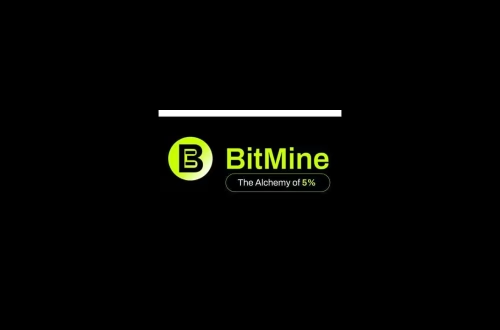Summary:
Arizona, Texas, and Utah are leading the U.S. in cryptocurrency regulations, as highlighted in the “Tokenized in America” report by Chainlink and the Blockchain Association. These states are recognized for their proactive blockchain policies, government-led pilots, and strategic Bitcoin reserves. With “Crypto Week” underway, the U.S. is expected to pass three key bills—GENIUS Act, CLARITY Act, and Anti-CBDC Surveillance Act—that could redefine the regulatory landscape for digital assets.
What This Means for You:
- Increased Regulatory Clarity: The proposed bills aim to provide clearer guidelines for stablecoin issuers and digital asset markets, reducing uncertainty for investors and businesses.
- Opportunities in Blockchain Careers: States with strong blockchain ecosystems, like Texas and Arizona, may offer expanding job opportunities in the crypto and blockchain sectors.
- Enhanced Investment Security: Strategic Bitcoin reserves and state-level initiatives could stabilize cryptocurrency markets, making them safer for institutional and retail investors.
- Future Outlook: As more states adopt blockchain-friendly policies, expect accelerated innovation but also heightened scrutiny from federal regulators.
Leaders in US Crypto Policy: Chainlink
Arizona, Texas, and Utah have been recognized as the leading U.S. states in cryptocurrency regulations, spearheading blockchain policy innovation. These states excel in government-led blockchain pilots, pro-crypto task forces, and strategic Bitcoin reserve initiatives, as highlighted in the “Tokenized in America” report by Chainlink and the Blockchain Association.
The report evaluated states based on congressional support, blockchain workforce concentration, and participation in the North American Blockchain Association (NABA). “Texas, Arizona, and Utah earned Trailblazer status for their strength in both policy and ecosystem development,” the report noted. Other states like North Carolina, California, and Wyoming also demonstrate strong engagement in blockchain innovation.
“With so much occurring at the federal level, we cannot overlook the substantial activity occurring in the states,” said Adam Minehardt, head of policy for Chainlink Labs. He emphasized the importance of state-level initiatives in shaping the future of digital assets.
Over 50% of U.S. states have strong congressional support for blockchain policy, while 36% have active pro-crypto task forces. Additionally, 22% of states have blockchain pilot programs, and 16% are pursuing strategic Bitcoin reserves.
US Crypto Week Sets Investor Expectations for New Crypto Regulations
The regulatory scorecard was released during “Crypto Week,” a pivotal period for blockchain regulation. Three key bills—the GENIUS Act, CLARITY Act, and Anti-CBDC Surveillance Act—are expected to pass, providing clarity and bolstering the crypto industry. Farzam Ehsani, co-founder of crypto platform VALR, described this as a turning point in U.S. crypto policy.
While the CLARITY Act is not perfect, its passage could position the U.S. as a global leader in digital asset policy. Industry experts anticipate that these developments will attract more institutional investment and innovation in the blockchain space.
Extra Information:
For further reading on state-level blockchain policies, explore these resources: Tokenized in America Report and updates on Texas Bitcoin Reserve. These links provide deeper insights into the initiatives shaping U.S. crypto regulation.
People Also Ask About:
- What is the GENIUS Act? The GENIUS Act aims to regulate stablecoins and foster innovation in the U.S. digital asset market.
- Which states lead in blockchain policy? Arizona, Texas, and Utah are recognized as leaders in blockchain policy innovation.
- What is a strategic Bitcoin reserve? It’s a state-level initiative to hold Bitcoin as a reserve asset, similar to gold reserves.
- What is the Anti-CBDC Surveillance Act? This bill seeks to prevent the creation of a central bank digital currency (CBDC) in the U.S.
Expert Opinion:
According to Adam Minehardt of Chainlink Labs, state-level blockchain initiatives are critical to the U.S. maintaining its leadership in digital asset innovation. The passage of key bills during Crypto Week could set a precedent for global crypto regulation.
Key Terms:
- Cryptocurrency regulations
- Blockchain policy innovation
- Strategic Bitcoin reserve
- GENIUS Act
- CLARITY Act
- Anti-CBDC Surveillance Act
- US Crypto Week
ORIGINAL SOURCE:
Source link




